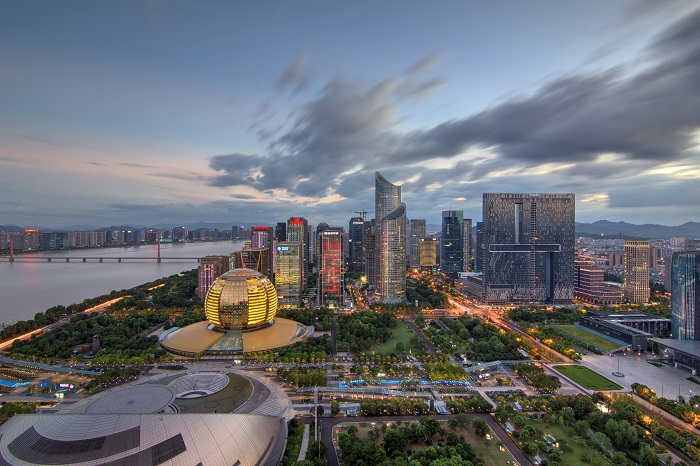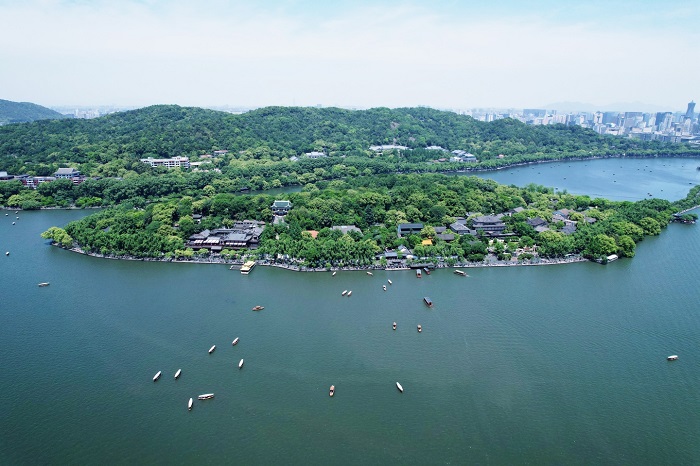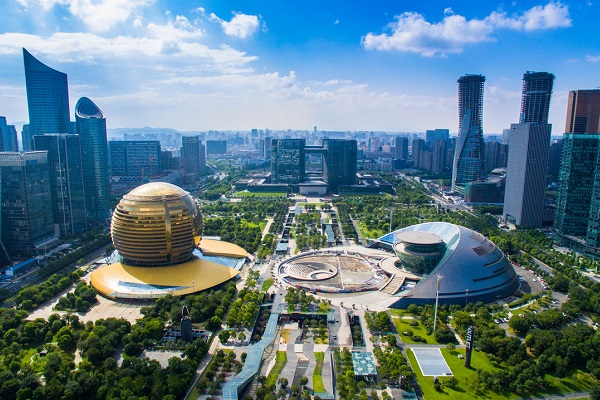Hangzhou achieves super megacity status as population surpasses 10m

A bird's-eye view of Qianjiang New City, Hangzhou's CBD. [Photo/IC]
After achieving a GDP of over 2 trillion yuan ($278.5 billion) in 2023, Hangzhou now has another significant announcement: its urban population has surpassed 10 million, marking the transition from a megacity to a super megacity.
The accomplishment makes Hangzhou the 10th super megacity in China and the first in Zhejiang province.
The population growth of Hangzhou's urban area has witnessed several critical turning points.
In 2009, the city's urban population exceeded 3 million, marking its transition to a Type I large city and signaling the start of its journey towards becoming a megacity.
In 2015, the urban population surpassed 5 million, propelling Hangzhou into the national league of megacities. In addition, it joined the ranks of "Trillion-Yuan GDP Cities", won the bid for the Asian Games, and hosted the G20 Summit in 2016.
Now, with its urban population surpassing 10 million, Hangzhou has ascended to the status of a super megacity, joining the ranks of Shanghai, Beijing, Shenzhen, Chongqing, Guangzhou, Chengdu, Tianjin, Dongguan, and Wuhan. Its global city ranking has soared to 73rd, an all-time high.

A bird's-eye view of West Lake, Hangzhou's most iconic tourist destination. [Photo/IC]
Recently, Hangzhou has set more ambitious goals for its long-term urban development.
By 2027, the city aims to be among the top 60 in the World City Register, becoming a city with global influence, competitiveness, and reputation.
By 2030, it aims to lead China in urban core competitiveness, establishing itself as a world-renowned city with distinctive characteristics and substantial global influence.
By 2035, it plans to complete its transformation into a modern international metropolis.
-
Visionary Pathway - Hangzhou Playbook
July 15, 2025



